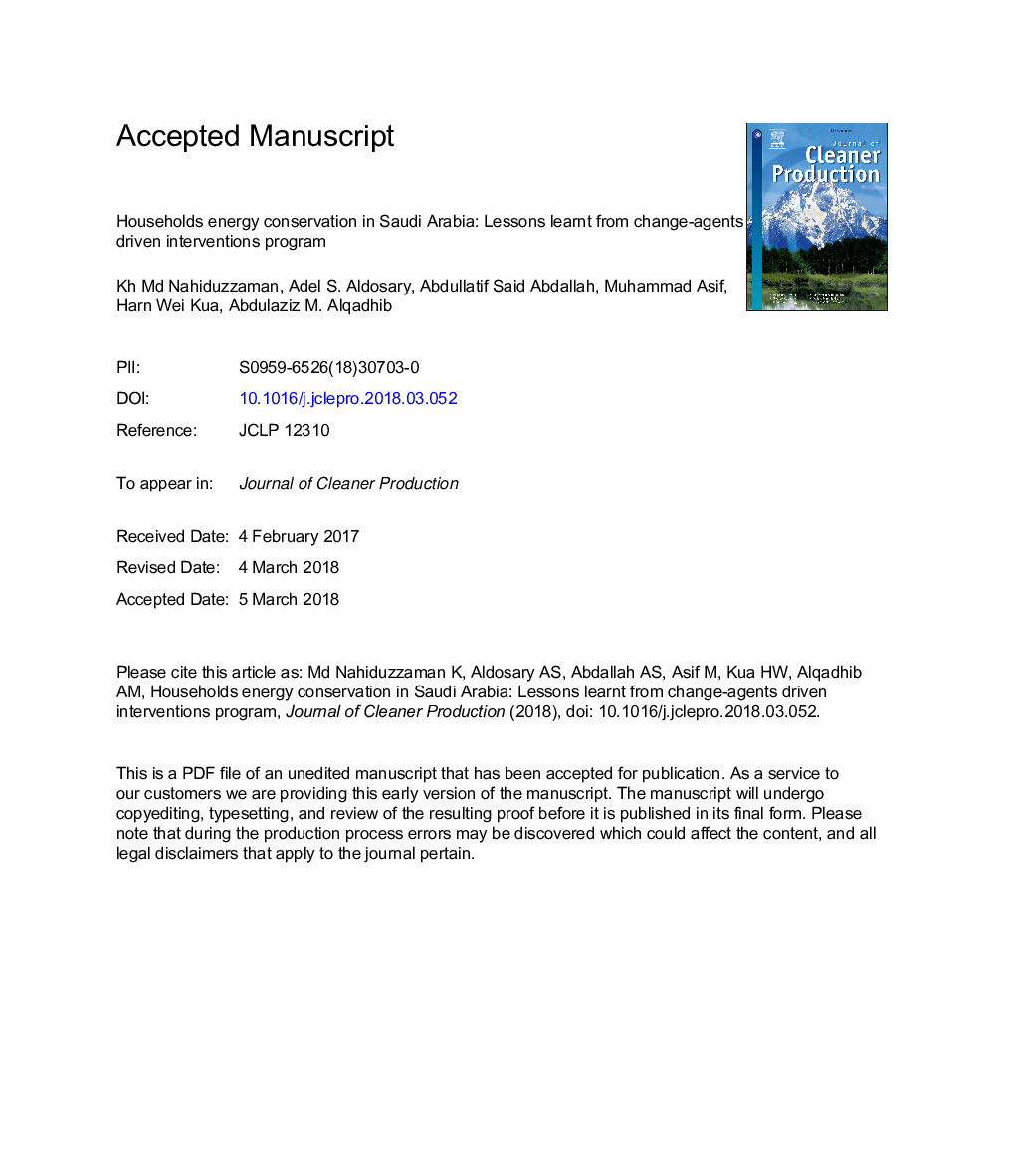| Article ID | Journal | Published Year | Pages | File Type |
|---|---|---|---|---|
| 8096600 | Journal of Cleaner Production | 2018 | 33 Pages |
Abstract
Saudi Arabia is one of the most energy intensive countries in the world in terms of per capita consumption. Highly subsidized energy prices and low tariffs are driving up domestic energy consumption. The rapidly growing energy demand has prompted the country to undertake several energy-saving measures. These initiatives, however, are all technology driven and no apparent measures have yet been taken to modify end users' behavior. In order to reduce the rate of growth of residential energy consumption, besides appropriate regulations, it is critical to engage end users through better education and awareness. Thus, this study aims to investigate the impact of behavior-based, non-technical interventions on end users' perceptions of energy conservation and, subsequently, any actual reduction in household energy consumption. Taking Khobar city as the geographical focus, 88 participating households were randomly chosen for interventions. The households were divided into two treatment and one control group. Analysis of the six-month intervention revealed a positive but statistically insignificant impact on energy conservation. The results suggest that there is a positive relation between the number of adults in the family and level of education with the energy consumption while number of female members in family, family size, building area shows a negative association attributing to 'economies of scale' and existence of pro-environmental behavior. In the end, this study attempts to build a foundational ground for policy prescription on energy conservation based on 'investment' and 'curtailment' behavior approaches to assess the 'longevity' effects.
Related Topics
Physical Sciences and Engineering
Energy
Renewable Energy, Sustainability and the Environment
Authors
Kh Md Nahiduzzaman, Adel S. Aldosary, Abdullatif Said Abdallah, Muhammad Asif, Harn Wei Kua, Abdulaziz M. Alqadhib,
